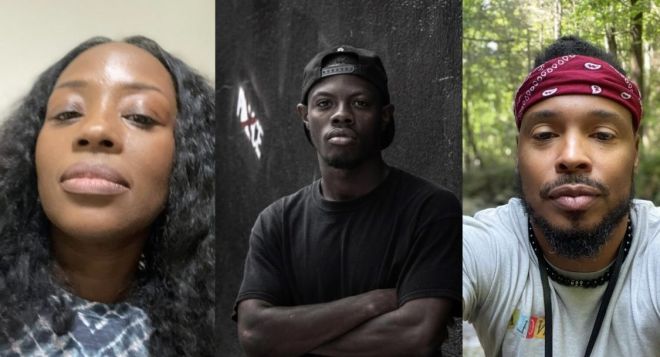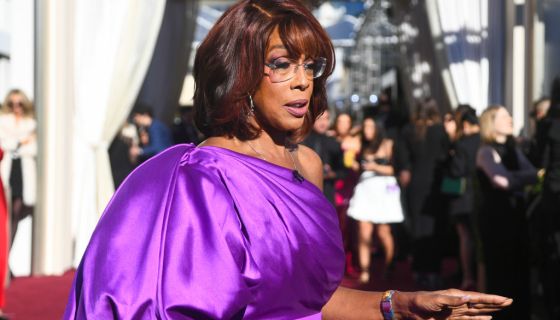
Courtesy of Ida Harris
Juneteenth became an official federal holiday in 2021. Prior to that, it had been 38 years since the last U.S. holiday was created—and that was Martin Luther King Jr. Day in 1983. While both are a result of the nation holding itself accountable for how it has historically dealt with race, King’s plight in the civil rights movement is widely known and well-documented in American history. Unfortunately, the same claim cannot be made about Juneteenth.
Juneteenth is a portmonteau of sorts that combines June and nineteenth. It marks the date in 1865 when the enslaved population in Galveston, Texas, learned of their free status—two years after the Emancipation Proclamation went into effect in 1863. Upon receiving the news, formerly enslaved people celebrated their manumission through worship, singing songs, dancing and, of course, breaking bread. These celebrations grew in number and breadth and became the traditional norm in Texas, and remains so this very day. One might think great news travels fast, but that’s furthest from the truth. Ironically, like the many Black people in Texas were unaware that slavery as they knew it had come to an end, many African Americans living outside of Texas, Louisiana and Mississippi and throughout other regions of the country, were unaware of Juneteenth history and its rich culture. MADAMENOIRE explores this phenomenon through a conversation with myself and family members: my brother Louis Garcia, a navy veteran with over 15 years of service dedicated to the United States Military, and my son Ahsan Washington, an amateur boxer and student of life.
IDA HARRIS: We have a mother-son, brother-sister and uncle-nephew dynamic on the line because I wanted to have a conversation about what you all know about Juneteenth, as we embark on the second year that Juneteenth is officially a national holiday. So, I’m just going to jump right into the questions. I want you all to relax. There’s nothing clinical and there’s no wrong or right answer. We’re really having a conversation around the holiday.
I wanted to know, what did you learn about Juneteenth in school?
Ahsan Washington: I didn’t learn anything about Juneteenth in school. I didn’t know about it until it became a holiday.
Ida: And that was like last year. You just learned about it?
Ahsan: Yeah.
Louis Garcia: Well, I learned absolutely nothing about Juneteenth in school. I, also, maybe learned about it maybe 2-3 years ago and I learned that through social media. Pick it up the social media and start looking through it. Looking into it through social media.
Ida: So, neither of you have learned through high school or college about Juneteenth. How do you all feel about that? Do you feel like the school system has failed you or the school system kind of lacks when it comes to Black history being a part of American history?
Ahsan: Yes, I feel like it’s something that has kind of been hidden.
Louis: Yes, I definitely feel robbed, but not just because of Juneteenth. When I learned that we haven’t learned it in school, it wasn’t a big shocker to me. I’m immune to the robbery of our culture, of Black people culture. So, it wasn’t a shock to me that it wasn’t what we learned it in school. This is something that has always been ongoing in our culture.
Ida: I get that. I feel that on a deep and spiritual level because I feel like Black American and other Afro cultures in the diaspora who don’t have any direct connection with our history, ones on American soil and beyond. So, I feel you on that one.
Louis: May I jump in real quick? So, I know Ahsan is a lot younger than us, and I wasn’t an A-plus student or anything, but I know that you were. Did you learn or know anything about Juneteenth in school?
Ida: I did not.
Louis: Because I know that you excelled in school and maybe you just have that much more exposure to that with you being a journalist and just all the schooling you took, I wanted if you maybe picked it up somewhere and maybe it wasn’t just us right.
Ida: I did not pick it up in high school, and I didn’t pick it up in undergrad. I did my own reading outside of academia and not text that had anything to do with school-related things. So, I read a lot of literature and historical novels and texts like that. That kind of informed me about it, and be able to talk about it in the classroom. But I didn’t learn it from the classroom, if that makes sense.
Louis: Got it, right. It does.
Ida: So, now that you’re aware of Juneteenth, can you tell me what you do know about it?
Ahsan: I just learned that [enslaved people] were freed but in Texas, they weren’t free and they learned afterwards by free slaves and people who were fighting in the military.
Louis: Pretty much the same thing. That was the emancipation of slavery. That was the official date for them.
Ida: What was your first pre-critical response to hearing about the Juneteenth? What was the first thought?
Ahsan: My first thought was basically about how they would do anything to hold us captive and just keep us as their property.
Ida: How did it make you feel? Did it make you feel any particular way?
Ahsan: I can’t say it really did. It’s like a crazy thought process that needs to be taken in.
Ida: OK. So, you’re still digesting it, today? Louis, same question.
Louis: Can you go deeper into that question? I wanna make sure I understand it?
Ida: When we think about something pre–critically, it’s like, what’s the first thing that hits you before you start thinking about it deeply? Thinking about it in any analytical way. So, when you receive the information, much like the enslaved received the information back then, like, what were your first thoughts?
Louis: OK, yeah, I was ecstatic because when I first learned of Juneteenth, I was ecstatic because I was never patriotic. Although, I have 15 years in the military, I’ve never really been patriotic. So, July 4. It’s kind of like whatever. It’s just the date of barbecue. I wasn’t holding no flag high, but I felt like this was something to be proud of. This is something I could buy fireworks for and spend money for.
I was ecstatic about Juneteenth, as something that we can call our own.
Ida: So, are you aware of Juneteenth customs and traditions.
Ahsan: Somewhat about the barbecues and the park celebration that they had years after, basically traveling to what is now called Emancipation Park in Houston.
Louis: Wow. I just learned right now. I just thought it was African American, the Black July 4th. That’s all I thought about.
Ida: OK—and it’s fine. How do you feel about Juneteenth becoming an official holiday?
Ahsan: Honestly, I feel like it’s a little back-handed. Like, should it really be anything to celebrate? I feel like we should be moving more toward fixing the actual problem that still exists in the country, which is the systematic racism that goes on till this day.
Louis: Again, I was excited. I was really excited, but I also felt sad to say. I also felt like, what’s the bigger picture? What am I’m supposed to be looking for? Like, how something is given to us to distract us. That’s why I was kind of like, OK, what’s really going on? Like a trick or something being played. But I was excited that we did have that.
Ida: Yeah, I agree. I’m happy with it, but I also agree with your first stance, which is why now, right?
Louis: Right.
Ida: What’s so special about today when we’re still being discriminated against? There’s still systemic racism, right?
I agree with both on that question. So let me ask you this. This is a more individual question. In what ways will you carry the history and legacy of Juneteenth forward? Would you celebrate it in your own way?
Louis: I absolutely will. I would like to do the custom traditions I just learned from Ahsan, about traveling to Houston. One thing I definitely would do is continue to celebrate, like, how we do. –And that’s cooking out, spirits and also passing it on. So, if it missed my children at school, I’m going to make sure they know. So that’s what I want to do to carry it on.
Ahsan: Yes, it’s basically the same answer. I don’t have any kids, but I do want to bring forth the culture and let it be known that it’s something to be heard. It’s a history that deserves to be heard.
Ida: And how would you celebrate?
Ahsan: Having good vibes… eating out.
Ida: Thanks for this important conversation. I hope that we continue to have more conversation about Black history, not just as a current event, but continue to think about it as a family. I’m glad we were able to sit down and have this conversation as a family.
Louis: Me, too. Maybe we should all put something together for Juneteenth this year.
RELATED CONTENT: Opal Lee “Grandmother Of Juneteenth’ Talks Securing National Recognition For The Holiday










